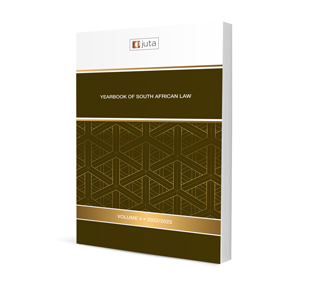Insurance Law

Insurance Law
Author Daleen Millard
ISBN: 978 148515 163 0
Affiliations: BIur LLB LLM (UP) LLD (UJ); Dean and Professor of Law, Faculty of Law, Thompson Rivers University
Source: Yearbook of South African Law, Volume 4, p. 730 – 836